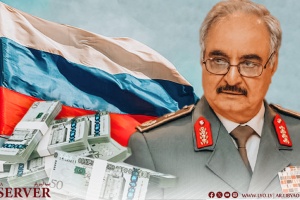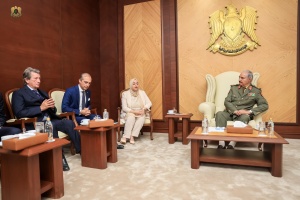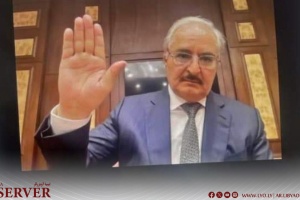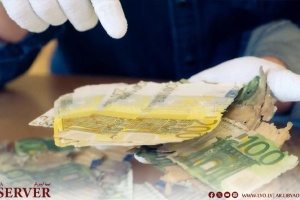The reason for Salame's deed, if not money or a future job like his predecessor Leon, would remain quite a huge mystery.
Libya warlord’s illness puts eastern region in a frenzy, unveils UN envoy’s true agenda
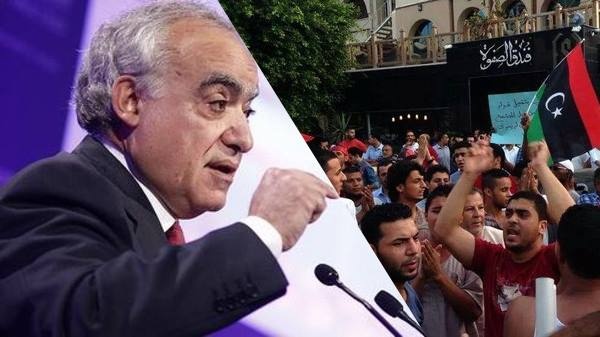
Be it death that made the warlord of eastern Libyan region disappear or be it a stroke that left him nonfunctional in one of the military hospitals in Paris, this news made quite a buzz in Libya and more so in the international press.
The continuous disappearance of Khalifa Haftar has kicked the door widely open for speculations on his fate, but most importantly it opened doors that were for long kept secret; the strife for power in eastern Libya, knowing that the Middle East Eye reported last Thursday that Haftar’s brain damage is “irreversible.”
“Haftar cannot talk, stand up and even sit down. He cannot fully comprehend and can never go back to normal.” MEE revealed, citing EU medical source.
This report was seconded by a statement made by Haftar's son Ouqba to Alnabaa TV channel. He told the TV that his father was in a state of coma and they told the reporters not to reveal it, adding that they insisted the reporters say Haftar is in a good health condition.
While the aides of the warlord in eastern Libya were trying to deny reports of his health issues on the media, the officials in the self-styled army were summoned by the main shot-callers outside Libya, namely: in the UAE.
Reports by the media, including Radio France Internationale, revealed the trip the Speaker of the House of Representatives (HoR) in eastern Libya, Aqulah Saleh, made to Abu Dhabi where he met with the UAE-Egypt commission to discuss who to succeed Haftar as their puppet in Libya’s Cyrenaica region.
The meetings, which have reported as finished on Friday, presented the names of Oun Al-Furjani, Abdelsalam Al-Hassi and Abdelrazik Al-Nathori as the possible substitutes of Khalifa Haftar.
Meanwhile, Al-Nathori who survived an assassination attempt a couple of days ago, was no favorite for neither the UAE nor Egypt, according to media reports.
What’s in it for Salame?
In this twist of events in Libya, resurfaced the obscure role of the UNSMIL headed by Ghassan Salame, who took the credit, in the first days of the reports of Haftar’s health, of denying that Haftar was in bad shape, saying he called him for 10 minutes in a statement he made on Alnabaa TV Channel.
Salame appeared to be part of the campaign of concealing the real news regarding the truth about Haftar’s health conditions for a couple of reasons: first, he asked Alnabaa channel to withdraw his ten-minute statement from their news, but the channel rejected. Second, he never referred to Haftar’s situation since the day he denied the warlord was ill.
Thus, skepticism about the role of the UN envoy to Libya rose among both ordinary Libyans and the Libyan stakeholders, notwithstanding to recall the corrupt role the former UN envoy to Libya, Bernardino Leon, played in the country after which he upgraded his career with a UAE-based job that brings him £35,000 a month.
A little, but stark proof in this regard was the Middle East Eye’s report on Thursday, in which it revealed, citing EU diplomat, that Salame was pressured by the UAE, France and Italy to quash the news of Haftar’s death and bad health conditions, which he did.
The reason for his deed, if not money or a future job like his predecessor, would remain quite a huge mystery.
However, one thing is clear now in Libya: Libyans are now upset with the behavior of Salame and are calling for dismissing him, organizing last week a campaign called “Together to kick out Salame” showing disdain and discomfort towards his behavior and what they called “paid fabrications.”


